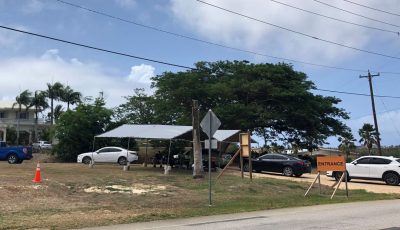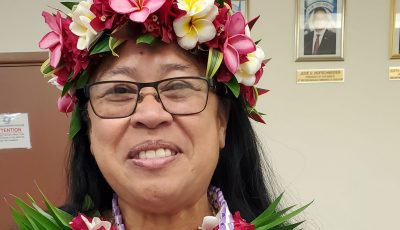Torres orders creation of invasive species council for bio-security plan
Amid the current economic boom, Gov. Ralph DLG Torres has issued an executive directive to order the creation of a special council tasked with developing a long-term bio-security plan to protect the Commonwealth from the dangers and harm of invasive species.
Torres established this “CNMI Invasive Species Council,” or CISC, through a July 15, 2016 directive sent to all department and activity heads.
According to the directive, CISC is given “the special purpose of providing policy level direction, coordination, and planning among Commonwealth departments, federal agencies, and international and local initiatives for the control and eradication of harmful invasive species infestations throughout the Commonwealth and for preventing the introduction of other invasive species that may be potentially harmful.”
The council will advise, consult, and coordinate invasive species related efforts, the directive said. And will consist of representatives from the departments of Lands and Natural Resources, Finance, Commerce, the Bureau of Environmental and Coastal Quality, Northern Marianas College, Commonwealth Ports Authority, Marianas Visitors Authority, Commonwealth Healthcare Corp., as well as local federal, international, and privately organized programs and policies.
Per the directive, appointed representatives will be of a position and authority within their respective offices as to make management-level decision on behalf of their office, as necessary to carry out the council’s objectives and measures.
“The Commonwealth has unique ecological history as islands with their surrounding reefs and lagoons, populated by thousands of native species of marine and terrestrial animals and plants, many of which are found nowhere else in the world,” the directive says. “The most cost-effective way to minimize the impacts of invasive species is to prevent their spread and colonization of new islands through comprehensive, collaborative bio-security efforts.”
The directive notes that food security, opportunities for economic prosperity, and natural environments in the Commonwealth are increasingly impact and continually threatened by a wide range of invasive plants, animals, insects, and disease organism.
It calls invasive species management “fundamental” to adapt to climate change, build resilient economies, communities, and ecosystems, and to achieve social and economic development objectives including poverty alleviation and the enhancement of food security, fresh water availability, human health, biological diversity, and coral reef health.



























